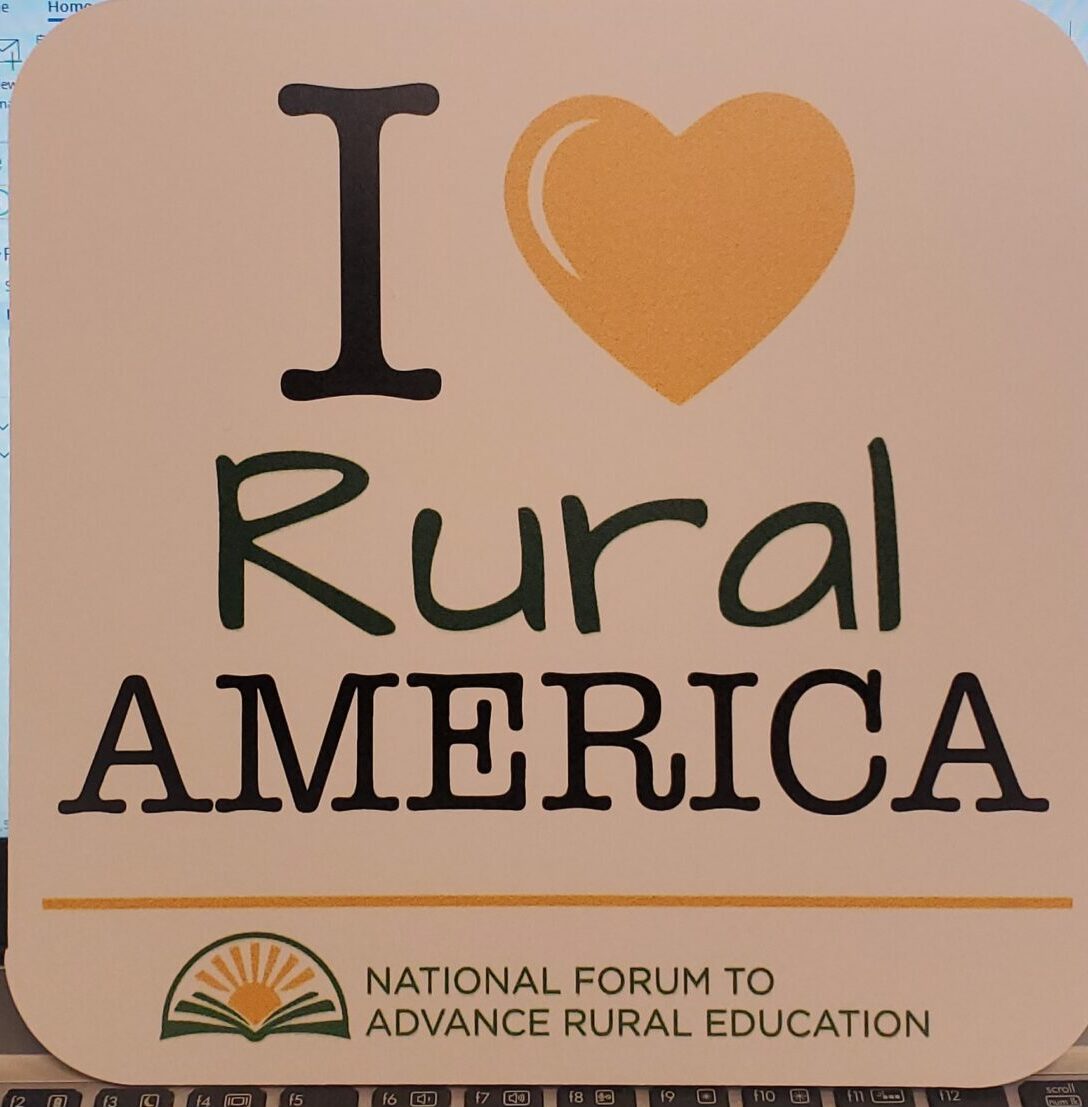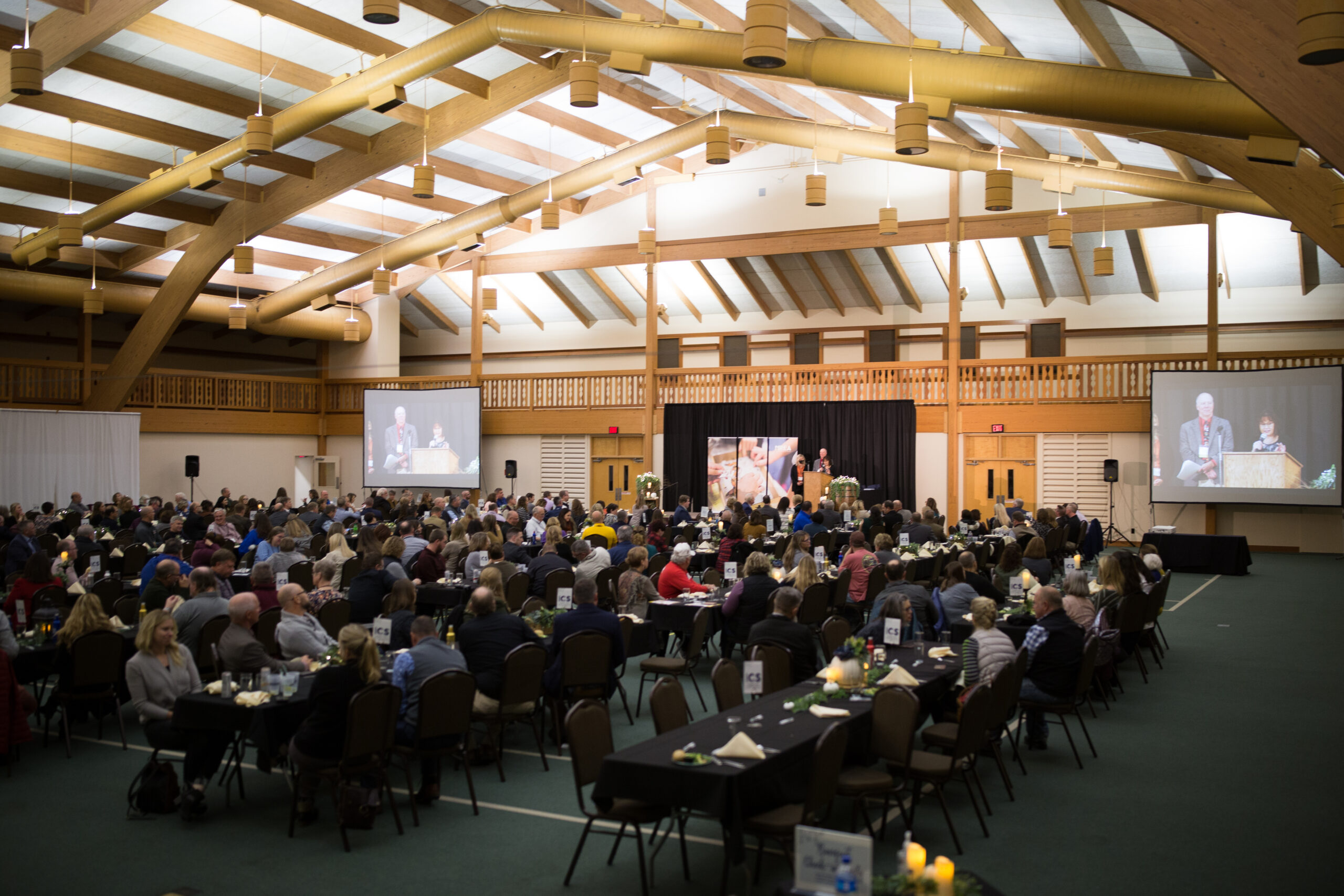The 2022 National Forum to Advance Rural Education (NFARE) was held in Green Bay, Wisconsin October 20-21. MREA Executive Director Bob Indihar and Operations Director Diane Vosen attended the conference to gain insights, network, and learn. Greater Minnesota education was also represented by Howard VanOtterloo, MREA’s 2022 National Rural Teacher of the Year candidate.
Wolf River Dancers from the Menominee Indian Tribe of Wisconsin opened the conference with a welcoming song and blessing. Miguel Cardona, the U.S. Secretary of Education discussed national education updates, including hiring a rural engagement liaison to minimize disparities at the national level and ensure rural education has a voice.
Practice Disruptive Thinking
Eric Sheninger’s Opening Keynote ‘Disruptive Thinking in Our Classrooms: Preparing Learners for Their Future’ gave all attendees much to consider. Key takeaways were:
- Disruptive thinking replaces conventional ideas with innovative solutions to authentic problems.
- Disruption impacts normal. Rethink normal to change or grow. (The Covid pandemic is a fitting example of this.)
- Vulnerability and honesty are the keys to change.
- Chase growth, not perfection. Focus more on the “what ifs” and less on the “yeah, buts.”
- Disruptive thinkers are prepared for their world, not the past world that has already happened.
- The greatest thing educators can do for students is help them believe in themselves.
Reframe the Rural Narrative
Ben Winchester from the University of Minnesota Extension delivered the keynote ‘Reinventing the Rural Narrative’ and highlighted misperceptions about rural America. Winchester is the opening keynote at MREA’s Greater Education Summit in November, with a positive message on life, growth, and change in rural America.
The conference offered a variety of breakout sessions with topics addressing common nationwide issues of staffing shortages, teacher burnout, and equity. Another session on bridging people and communities shared ideas on being a stable connection between old and new populations and the need to reach out and welcome in newcomers who add flavor to the community. Ty White, the 2022 National Rural Teacher of the Year from Arizona, and Gerry Brooks, a Kentucky educator, closed the conference with inspiring messages on student growth and promoting healthy working relationships.
Rural Educators Enhance Rural Schools
Howard Van Otterloo, Janesville-Waldorf-Pemberton history teacher, 2021 MREA Educator of Excellence and 2022 MREA National Rural Teacher of the Year candidate, was honored to represent Minnesota:
What struck me most was the genuine care shown by everyone involved for not only rural education, but rural America in general. There were attendees from all 50 states represented, and all were dedicated to not only promoting but enhancing rural schools and communities.
The keynote speakers painted positive and inspiring pictures of the future of rural America. Their speeches were focused on getting past stereotypes and how important it is to stop trying to go back to the way things used to be. Instead, they encouraged us to “be disruptive” in a good way. We should think outside the box and innovate. We should adapt and embrace the future.
I was stuck by the inclusiveness on full display, starting with drummers from the Menominee nation who began the conference with a blessing. I attended sessions designed to integrate African American and Hispanic cultural norms into the classroom, so we can understand how others perceive the world around them. Other sessions were geared toward growing rural schools and communities and recruiting and retaining teachers.
I connected with many others from the education field to gain insights into how they run things in their states and districts. In these conversations, I came away pleased to have the honor of teaching in rural Minnesota, where we have a greater appreciation for education than some other states.
Thank you to the Minnesota Rural Education Association and all the wonderful folks at MREA for the opportunity to attend this conference.
Rural Public Education Concerns are National Concerns
As MREA connected with colleagues from Wisconsin, Iowa, and all 50 states, we were reminded that public education is under attack in many states and at a higher level outside of Minnesota. Many states have one political party in control of the legislature and governorship, making it more difficult for public education to be properly funded. Even though Minnesota is relatively unique in having one party in control of the Senate and another in control of the House, dual leadership creates an environment where compromise must happen to pass bills.
MREA has confident, competent representation at the national level through the National Rural Education Association, which co-presented the conference with Rural Schools Collaborative and gives MREA insight into national issues. MREA was honored to learn from the incredible educators and NFARE presenters. Attending the national conference was a great way to prepare for our own Greater Education Summit in November. We can’t wait to see you there!





